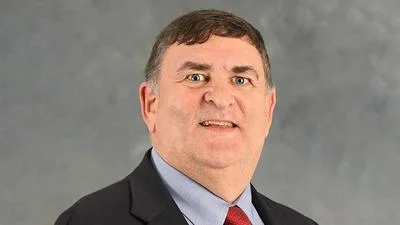Illinois State Sen. Terri Bryant | senatorbryant.com
Illinois State Sen. Terri Bryant | senatorbryant.com
State Sen. Terri Bryant (R-Murphysboro) is sponsoring Senate Bill 240 which requires the Department of Public Health to provide information to males entering ninth grade about testicular cancer as part of their health examination.
Last week Bryant shared a testimony of Asa Newell of Jefferson County who spoke in favor of the bill due to his experience battling testicular cancer as a teenager.
“Asa Newell of Jefferson County testified this week on SB240,” wrote Sen. Bryant. “A bill to address the need for early detection of testicular cancer. This bill was suggested by Asa who has a compelling personal story to tell us.”
Newell was diagnosed with testicular cancer when he was 17 years old on September 11, 2020, and told his story about how he was just like any other junior in high school but faced a diagnosis of stage 3 testicular cancer.
“I was playing sports, I was active in different clubs such as FFA, and I was diagnosed with testicular cancer,” Newell said in a testimony he gave at the state capitol in Springfield. “You know instead of being able to go to school and worry about my next class, or worry about the next test, I was worrying about my next CT scan and my next chemotherapy treatment. When I was diagnosed I was what was thought to be a stage one, and after a rather radical orchiectomy, which is the removal of the right testes, and several CT scans it was found that the cancer had traveled to my liver and kidneys. I had several smaller tumors in my abdomen, as well as multiple in my lungs, and one behind my heart.”
Newell explained that he had symptoms for over a year but didn’t realize it because of a lack of information and education. He said his parents became 24-hour caregivers to him when he moved to Indianapolis with them in October 2020. He lived there until January 2022 and was going through 160 hours of chemotherapy with three different drugs: Bleomycin, Cisplatin and Etoposide. He added that this was done by Doctor Einhorn of Indiana University, and there was a 95% cure rate.
“The most important thing though about testicular cancer is that if caught early in stage one it has a 99% cure rate without the need of chemotherapy,” Newell said. “Chemotherapy with me ravaged my body. I was unable to walk by the end of it. It had destroyed my muscle mass, I have heart issues now, and I'm at a higher risk for a heart attack earlier on not only that, but young men who understand who undergo all three rounds of this treatment have to be cautious because there are at a 24% higher rate of health issues later on in life. And, you know, I'm not a doctor. I'm not some medical genius, but what I can tell you is that I'm a survivor and to have more education in our school systems and more public knowledge and to get the conversation rolling about testicular cancer will save more lives than we can possibly imagine later on down the road.”
Newell spoke to the Public Health committee at the state house, where it passed in the committee. He said he was impressed by the senators who were able to ask him questions and learn about the importance of the bill.
Bryant and Newell both posted the testimonies on their Facebook pages, with Bryant saying the bill was suggested by Newell who “has a compelling story to tell us.”
“Your son’s life may depend on it,” Bryant wrote in her post.
Senate Bill 240 is sponsored by Senators Bryant, Dave Syverson, Karina Villa and Andrew S. Chesney. The information provided to ninth-grade students would be put together by the Department of Public Health and it would go into effect immediately upon passage, according to the Illinois General Assembly webpage.
According to information from the Mayo Clinic, the symptoms of testicular cancer include a lump or swelling in the testicle, a feeling of heaviness in the scrotum, swelling of the scrotum, pain or discomfort, enlargement or tenderness of breast tissue, and back pain. It typically happens only in one testicle. The Mayo Clinic says it is time to see a doctor if any of these symptoms last more than two weeks.
It is unclear what causes testicular cancer. It starts when something causes changes to the DNA of the testicle cells. The tumor can grow beyond the testicle and most often it spreads to the lymph nodes, liver and lungs. Testicular cancer can happen at any age but is most common between the ages of 15 and 45.






 Alerts Sign-up
Alerts Sign-up